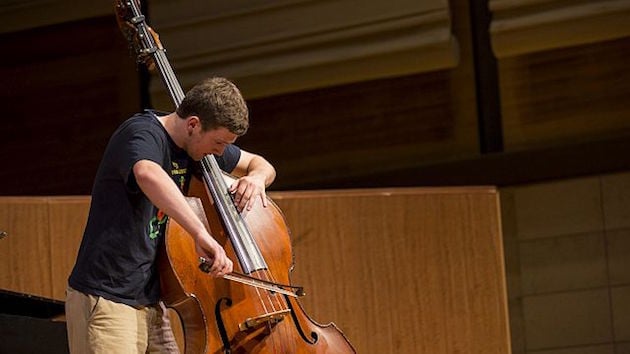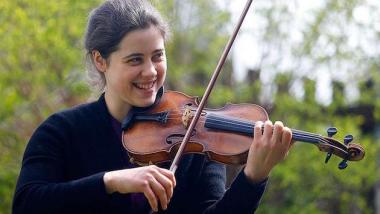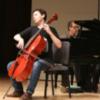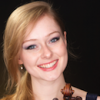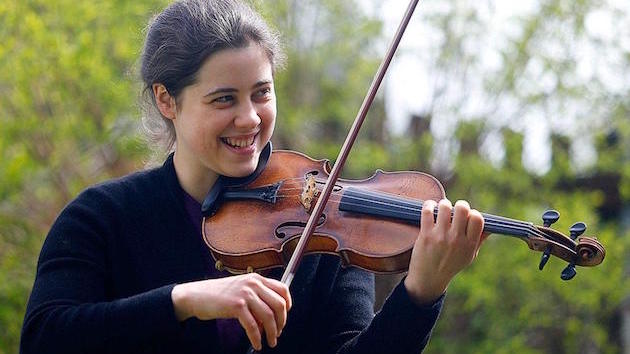
If there are any yawns at this year’s Irving M. Klein International String Competition, it will be prompted by the subject — not the performance, surely! — of a compulsory piece for all semifinalists. It is Lisa Bielawa‘s Insomnia Etudes, a new three-movement work written specifically for the competition by Bielawa, who “loves writing virtuoso string music — a consequence of having played the violin myself (somewhat badly) for 13 years.”
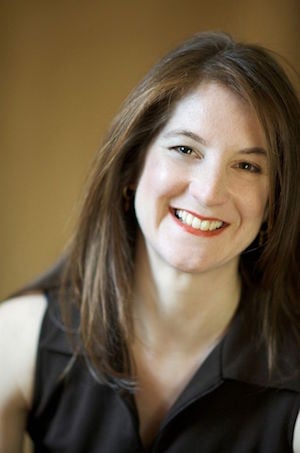
Contestants — also required to play a solo Bach piece and a concerto movement — will play an appropriate movement from the Insomnia Etudes, namely “2:30 a.m. for solo violin,” “4 a.m. for solo viola,” or “5:15 a.m. for solo cello.” So much for musical levity, now let’s turn to the substance that is “The Klein.”
California Music Center and San Francisco Conservatory of Music are co-hosting the 32nd annual competition for string musicians aged 15 to 23. Semifinals, free to the public, are held 10 a.m. to 4 p.m. on June 3; finals beginning at 7 p.m. on June 4 — $20 general admission, $10 seniors, youth and students. All events are in the Conservatory Concert Hall.
Mitchell Sardou Klein, artistic director of the California Music Center, founded the competition 32 years ago to honor his father, the cellist Irving M. Klein, who, he says, “had an extraordinary dedication to his students, and we all thought that focusing on enhancing the career opportunities of the most outstanding conservatory-age string players in the world would continue that legacy.”
The success of the competition has been spectacular as measured by winners and participants joining the ranks of some of the finest orchestras in the world. The current contest is exceptional, Klein says, in that it features three returning semifinalists, two Bay Area performers, and two students of Klein laureates.
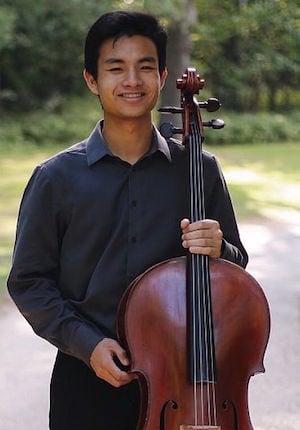
Sarah Hall (Seattle), Kyumin Park (Korea), and Jeremy Tai (Cupertino) have reached the semifinals for the second time; Tai and James Poe (Palo Alto) are from the Bay Area; Daniel Kaler is a student of Mark Kosower, principal cellist of the Cleveland Orchestra and 1992 Klein Competition first prize winner; and Lynn Sue-A-Quan is a student of Teng Li, principal violist of the Toronto Symphony and 2001 and 2002 Klein Competition second prize winner.
“Each year we are thrilled and inspired by the performances of the young string players who come to San Francisco to compete for these major prizes,” says Klein, “and the international recognition that comes with them. The process of discovery of these extraordinary musical artists is fascinating and engaging for our growing audience at the San Francisco Conservatory.”
Last year’s competition was notable for bassist William Langlie-Miletich winning first prize, the first time a bass player placed first.
Semifinalists:
- Karisa Chiu, violin, 17, Music Institute of Chicago Academy, student of Almita Vamos
- Peter Eom, cello, 21, Colburn Conservatory of Music, student of Clive Greensmith
- Sarah Hall, violin, 22, student of Ronald Patterson
- Daniel Kaler, cello, 19, Cleveland Institute of Music, student of Mark Kosower
- Kyumin Park, violin, 20, New England Conservatory, student of Donald Weilerstein
- James Poe, violin, 17, Palo Alto High School, student of Wei He
- Lynn Sue-A-Quan, viola, 17, York Mills Collegiate Institute, student of Teng Li
- Jeremy Tai, cello, 18, Northwestern University, student of Hans Jorgen Jensen
- Zhanbo Zheng, viola, 20, New England Conservatory, student of Kim Kashkashian
The jury includes Bielawa, cellist Michael Gelfand, violist David Kim, violinist Ian Swensen, music director Barbara Day Turner, violinist William van der Sloot, and cellist Sandy Wilson.
All contestants select their programs for semifinals and finals in advance. For example, Lynn Sue-A-Quan on June 3 will play Bielawa’s Insomnia Etude No. 2 (“4 a.m.”), the Prelude from Bach’s Suite No. 3 in C Major, BWV 1009, and Andante comodo from the Walton Viola Concerto. If she makes it to the finals, there she will play the Bach Prelude, a movement from Rebecca Clarke’s Sonata for Viola and Piano, and Allegro moderato from the Walton Viola Concerto.
